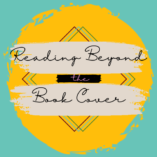Mary Monroe’s Mrs. Wiggins follows Maggie Franklin, daughter of an alcoholic and former lady of the night. Maggie’s accustomed to being an outsider, so when the opportunity to marry into an upstanding family presents itself, she dedicates her new life to being a model citizen that all envy and admire. She’s a permanent fixture in a “good family”, married to a man from a “good home,” and she finally has the child that she’s desired to have since the day she said, “I do.” When all of this is threatened, a husband, a job, a child, and a church home, to what lengths will Maggie go to keep everything she’s decidedly sacrificed to have?
In Mrs. Wiggins, we are presented with a highly volatile marriage of convenience between two long-time friends, Hubert and Maggie, who have vowed to be partners, in addition to relying on each other to protect their secrets. With each secret stacking on top of each other, it becomes more and more dangerous to keep them. As with most things that become too full, their bag of lies and secrets can no longer be contained.
Mrs. Wiggins was the most entertaining and evenly-paced book in the Lexington, Alabama series. The story is equally character and plot-driven with situational scenes that make you ask yourself “What would you do?” The historical fiction genre is reflective and I had to remind myself that period and location must be considered when proposing what I would do if I were any of the characters. This is what I enjoyed most about the book. The restrictions placed on the characters, forced them to be creative in living their fake lives and kept me guessing what they were going to do next. I couldn’t conveniently say what I would do in any of the character’s cases because I’ve never even remotely experienced what they have in my current lifetime. This is the key element that kept my interest piqued.
This book was a good time, but there were some things that I noted that may be goofy to some and useful to others. Follow me further…
Continue reading or watch the video 🙂
Depending on your critique level, this book can be a quick and easy read, and that’s to be expected. I found the writing style to be accessible, but repetitive, especially when it comes to food. I had to laugh at myself as I carefully counted each mention of gumbo until I ultimately gave up because it was just too many. I’m assuming this is something that the author intentionally does because it occurs again in the next two books, where we are introduced to the same food any time the characters eat. I’m also going to suppose that this is done to reflect or signify the location and period in which this book takes place; the Great Depression in The Deep South (the U.S.). We can blame this small annoyance on me as a lover of food. I like variety in my meals and the idea of eating the same thing all the time grinded my gears and my stomach (lol). I was hungry while reading. There’s no way I’m eating gumbo and pig parts every day if I don’t have to.
I am aware that most of my irritants with this book are because of the location and period. No fault of the author, as it’s historically accurate for the setting. I stand by my previous mention of my enjoyment of the setting and its hand in guiding character decisions, but I’d be remiss if I didn’t mention that the small town setup where boundaries between friends, family, neighbors, and church members do not exist. This made me cringe. I scoffed every time someone would walk into someone else’s home unexpectedly. You might as well don’t have doors (lol).
Note: I am aware that there are communities where that is still acceptable and welcomed, but for me, it is too much. It’s uncomfortable, invasive, and stress-inducing.
And another thing…I like a messy story just as much as anyone else, but I also have limits. It’s established that Hubert and Maggie need each other for various reasons, but it was upsetting to me that the vehicle behind their marriage and this story is fueled by deception and lies (not something I choose to partake in). I left this book and the subsequent ones asking myself why people go through the trouble of lying *scratches head*.
It seems like I’m complaining more than giving a constructive review. And I am (a little), but that’s a good thing. My gripes are a testament to the characterization Mary Monroe affords to the characters and places she creates. They are realistic. I’d be concerned if they weren’t. 😉
If you enjoy small-town settings with a small cast of characters and good ol’ mess, give Mrs. Wiggins a read.






I would love to read this book. This is the first time I have heard of it, but your review makes it sound quite promising.
I’m happy my review found you. Give Mrs. Wiggins a try :-). You may enjoy it.
I just finished the book Mrs. Wiggins, I thought it was a page turner. I want to know what they were going to do next. I agree with you about the Gumbo, I sure would like to taste it. Just got “Empty Vows”
I’m happy you enjoyed it! You’ll have to let me know how your reading experience with Empty Vows compares against Mrs. Wiggins. Mrs. Wiggins was my favorite in the trilogy, but Double Lives took that spot when I read it earlier this year. It’s set in the same town and with different characters. I had a really good time with it. You may find that to be a page turner as well :-). For me it was a fast and entertaining read.